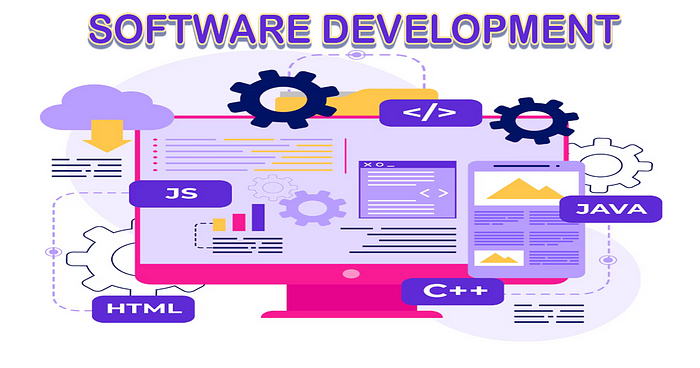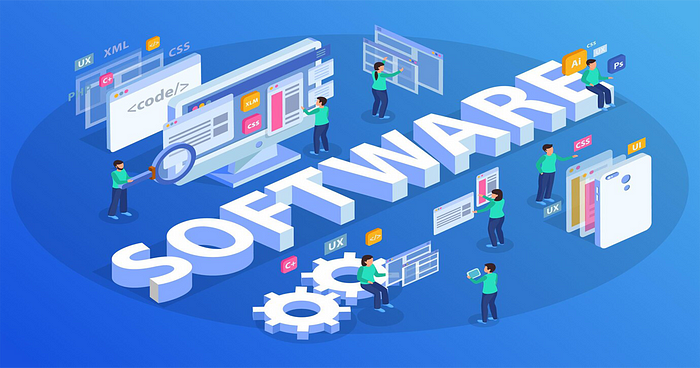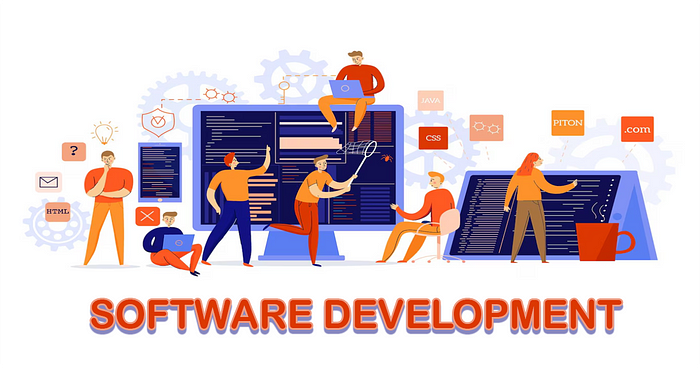Software Development: Building the Digital Future

In today’s fast-paced digital world, software development stands as a cornerstone of technological advancement. From mobile applications to complex enterprise systems, software development shapes how we work, communicate, shop, and entertain ourselves. But what exactly is software development, and why is it so crucial in the modern era?
What is Software Development?

Software development is the process of designing, coding, testing, and maintaining applications or systems that run on computers or other electronic devices. It encompasses a variety of disciplines, including software engineering, programming, project management, user experience (UX) design, and quality assurance (QA).
The goal of software development is to create efficient, scalable, and user-friendly programs that solve real-world problems or fulfill specific needs. Whether it’s an accounting tool for businesses, a video game for entertainment, or a healthcare management system for hospitals — software developers are behind the creation of these digital solutions.
The Software Development Lifecycle (SDLC)

A structured approach to software creation is essential to ensure quality and efficiency. This is where the Software Development Lifecycle (SDLC) comes into play. SDLC consists of several phases:
- Requirement Analysis: Understanding the client’s needs and defining the scope of the project.
- Design: Creating architecture and user interface designs based on the requirements.
- Implementation (Coding): Writing the actual code using programming languages like Python, JavaScript, Java, C#, etc.
- Testing: Verifying that the software is free of bugs and performs as expected.
- Deployment: Releasing the software for use in a live environment.
- Maintenance: Regular updates and fixes after deployment to improve performance or add features.
This process helps ensure that the software meets user expectations, is delivered on time, and functions reliably.
Popular Software Development Methodologies
There are several methodologies used in software development, each with its own approach to managing and executing projects:
- Waterfall: A linear, sequential method where each phase must be completed before the next begins.
- Agile: A flexible, iterative approach that emphasizes collaboration, customer feedback, and continuous improvement.
- Scrum: A type of Agile methodology where development is broken down into time-boxed iterations called sprints.
- DevOps: Focuses on unifying software development (Dev) and IT operations (Ops) to deliver high-quality software faster.
Among these, Agile has gained the most popularity due to its adaptability and focus on delivering value to the end user.
Discover the Full Guide Now
Programming Languages and Tools

Software development involves a wide array of programming languages and tools, chosen based on the project’s requirements:
- Front-End Development: HTML, CSS, JavaScript, React, Angular.
- Back-End Development: Node.js, Python, Ruby, Java, .NET.
- Mobile Development: Swift (iOS), Kotlin (Android), Flutter, Xamarin.
- Databases: MySQL, PostgreSQL, MongoDB, Oracle.
- Development Tools: Git, Docker, Jenkins, Visual Studio Code, JIRA.
These tools help developers build robust applications, manage code efficiently, and automate testing and deployment.
Trends Shaping the Future of Software Development

The field of software development is constantly evolving, driven by new technologies and user demands. Here are some current and emerging trends:
- Artificial Intelligence (AI) and Machine Learning (ML): Integrating intelligent features such as chatbots, recommendation systems, and predictive analytics.
- Cloud Computing: Building scalable, flexible, and cost-effective software solutions using platforms like AWS, Microsoft Azure, and Google Cloud.
- Low-Code/No-Code Platforms: Enabling non-developers to create simple applications with minimal coding knowledge.
- Cybersecurity: Increasing emphasis on building secure applications due to growing digital threats.
- Internet of Things (IoT): Developing software to manage interconnected devices and smart systems.
These trends not only enhance the capabilities of software but also redefine how developers approach design and functionality.
The Role of a Software Developer
Software developers are problem solvers, creators, and innovators. They analyze requirements, write efficient code, and collaborate with other stakeholders like designers, testers, and project managers. Apart from technical skills, soft skills such as communication, teamwork, and adaptability are equally important in this field.
Continuous learning is also a key aspect of being a software developer. With new frameworks, libraries, and technologies emerging regularly, developers must keep their skills up-to-date to remain competitive and relevant.

Comments
Post a Comment